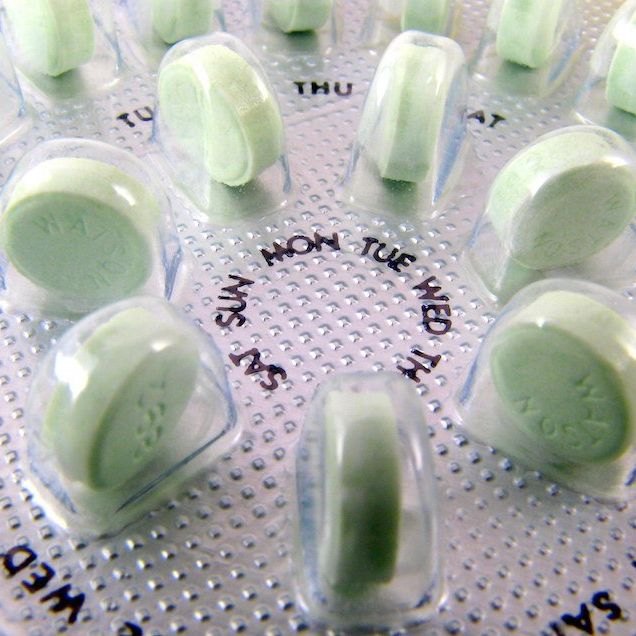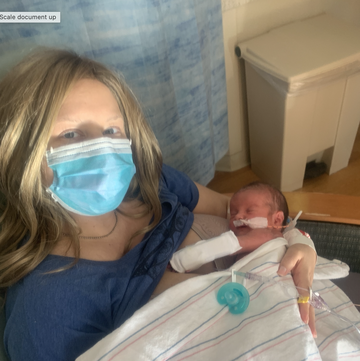The Pill is pretty freakin’ great: It prevents pregnancy, helps ease PMS symptoms, and can even give you clearer skin. But a new study indicates that there may be a link between hormonal contraception methods—like the Pill—and depression.
According to the research, which was published in the Journal of the American Medical Association Psychiatry, the use of hormonal contraception—especially among adolescents—was associated with the subsequent use of antidepressants.
Here’s the deal: The study looked at more than one million women between the ages of 15 and 34 who were using some form of birth control and followed their health outcomes for 13 years. Overall, they found that women using hormonal birth control methods (including the Pill, hormonal IUDs, vaginal rings, and hormonal patches) were more likely to be on antidepressants and have a depression diagnosis by the end of the study compared to women who opted for non-hormonal options of birth control (condoms, diaphragms, or the copper IUD).
RELATED: How to Use Your Birth Control to Prevent PMS
So should you be worried? Well, it’s important to note that this link is just a correlation—it doesn’t mean that the Pill or other forms of hormonal BC cause depression. But considering how many women were involved in the study, it’s something doctors should pay close attention to, says Niket Sonpal, M.D., assistant clinical professor at Touro College of Medicine in New York.
Still, that doesn’t necessarily mean it’s time to ditch your go-to birth control method. “The number-one thing is that you need to have a very frank conversation with your doctor to make sure that they’re aware of this link,” he says. “If you’re on the Pill, you should be looking for things like changes in mood and signs of depression like sleep changes and lack of energy and appetite.”
Sign up for Women's Health's new newsletter, So This Happened, to get the day’s trending stories and health studies.
Secondly, if you have a history of depression or anxiety (either personally or in your family), your gyno needs to be aware of that. If you’re already at an elevated risk for depression, there may be a better option than hormonal birth control. That dialogue with your doctor should stay open, especially if you’re a first time user, says Sonpal.
Whenever you start a new birth control method, you should schedule a follow up with your doc within a few weeks just to make sure your body is responding well. “If you as a patient start to see any symptoms of depression, you need to go to your doctor and discuss options,” he says.
The bottom line: More than anything, these findings stress the need for communication between you and your gyno. Make sure you’re checking in regularly about your physical and mental health.
Macaela MacKenzie is a journalist who writes about women and power. She covers women’s equality through the lenses of sports, wellness, and the gender gap across industries and is the author of MONEY, POWER, RESPECT: How Women in Sports Are Shaping the Future of Feminism. Mac was most recently a Senior Editor at Glamour where she directed all health and wellness coverage. Her work has appeared in Elle, Glamour, SELF, Bustle, Marie Claire, Allure, Women's Health, and Forbes among other publications.













